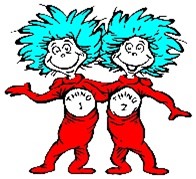We all spend time waiting—in line, in traffic, on hold. Waiting for the cable guy to arrive. Waiting for the doctor to walk in. Waiting for the money we need. Waiting for someone to respond to a text. Waiting for the right mate to come along. Waiting for a prayer to be answered. Waiting for our metaphorical ship to come in! We often find ourselves . . . as Dr. Seuss poetically phrases . . .
“just waiting.
Waiting for a train to go
or a bus to come, or a plane to go
or the mail to come, or the rain to go
or the phone to ring, or the snow to snow
or waiting around for a Yes or No
or waiting for their hair to grow.
Everyone is just waiting.”
Dr. Seuss concludes in his book Oh, the Places You’ll Go, that waiting is “a most useless place.”
But I do not concur. It can be a paralyzing place, a powerless place, but it is only so if we are waiting on others to do what we want them to do—which is always frustrating because no one seems to be on our schedule. What? 🤪 But why would they be?
So, how do we turn this “most useless place” into a useful one? What do we do while we wait? I suggest two things:
 David writes “For God alone my soul waits in silence; from him comes my salvation. He alone is my rock and my salvation, my fortress: I shall not be greatly shaken.” (1) While we are waiting for people to come through, for things to happen, we must turn our hearts to God. If we put our trust in people and circumstances, we will be under their control. And here, I agree with Dr. Seuss, that that is a “most useless place.” We give the people in our lives and the circumstances in which we find ourselves waayy too much power. 🤔 We act as if we cannot make a move until (fill in the blank) happens. How absurd! But if we turn to God and wait “in silence,” we “shall not be greatly shaken.” David probably struggled with it, too, but he knew where to place his trust: “For God alone, O my soul, wait in silence, for my hope is from him.” (2) Our hope is not that people will come through for us, that things will work out—our hope is based on our faith in God, which is actually “the assurance of things hoped for, the conviction of things not seen.” (3) Waiting, therefore, should be a time of hope.
David writes “For God alone my soul waits in silence; from him comes my salvation. He alone is my rock and my salvation, my fortress: I shall not be greatly shaken.” (1) While we are waiting for people to come through, for things to happen, we must turn our hearts to God. If we put our trust in people and circumstances, we will be under their control. And here, I agree with Dr. Seuss, that that is a “most useless place.” We give the people in our lives and the circumstances in which we find ourselves waayy too much power. 🤔 We act as if we cannot make a move until (fill in the blank) happens. How absurd! But if we turn to God and wait “in silence,” we “shall not be greatly shaken.” David probably struggled with it, too, but he knew where to place his trust: “For God alone, O my soul, wait in silence, for my hope is from him.” (2) Our hope is not that people will come through for us, that things will work out—our hope is based on our faith in God, which is actually “the assurance of things hoped for, the conviction of things not seen.” (3) Waiting, therefore, should be a time of hope.
 The word “wait” has more than one definition. One is to linger, to hang around, to stay in place. Another is to act as a server, a waiter/waitress. If we want our waiting time to be useful, we need to serve—serve the Lord, serve others. Isaiah writes “those who wait for (serve) the Lord shall renew their strength; they shall mount up with wings like eagles; they shall run and not be weary; they shall walk and not faint.” (4) In serving the Lord, we will not become weary. Ironically, we become stronger. Waiting, therefore, should be a time to help.
The word “wait” has more than one definition. One is to linger, to hang around, to stay in place. Another is to act as a server, a waiter/waitress. If we want our waiting time to be useful, we need to serve—serve the Lord, serve others. Isaiah writes “those who wait for (serve) the Lord shall renew their strength; they shall mount up with wings like eagles; they shall run and not be weary; they shall walk and not faint.” (4) In serving the Lord, we will not become weary. Ironically, we become stronger. Waiting, therefore, should be a time to help.
The next time you find yourself waiting, think about David and Isaiah (and Dr. Seuss 😏). Be hopeful. Be helpful. And while you are watching your wait, “Oh, the places you’ll go!”

(1) Psalm 62:1-2 (2) Psalm 62:4 (3) Hebrews 11:1 (4) Isaiah 40:31
Seuss, Dr. Oh, the Places You’ll Go! Random House, 1990.


Debbie, the Isaiah verse “those who wait…” was Grandpa Belew’s favorite verse. I imagine he would agree with your thoughts on waiting. Thanks for sharing ideas for us to ponder!
Thanks Debbie! This especially resonates with my inpatient self.